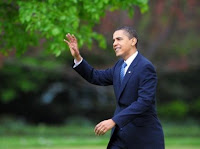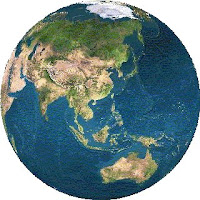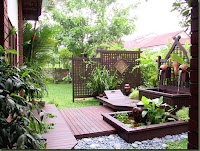
President Barack Obama launched his push for a green energy revolution and to pass historic climate change legislation, making his pitch from a wind energy factory on Earth Day. Obama argued in Iowa, the state that set him on the road to the White House, that bloated US energy consumption was inflicting an unacceptable cost on the economy and the climate, as his top environmental officials lobbied Congress.
"The American people are ready to be part of a mission," Obama said at a closed-down appliance factory that was converted into a facility that makes huge towers for wind energy turbines, with the creation so far of 91 jobs.
Obama boasted his administration had already made more progress than in the previous 30 years of US energy policy, but warned the quest for alternative fuels would not be without bumps on the road or be cost free.
"On this Earth Day, it is time for us to lay a new foundation for economic growth by beginning a new era of energy exploration in America," he said.
The president bemoaned the fact that the United States had less than five percent of the world's population but accounted for a quarter of its demand for oil, often extracted from unstable regions.
"We cannot afford that approach anymore -- not when the cost for our economy, for our country, and for our planet is so high."
"The choice we face is not between saving our environment and saving our economy -- the choice we face is between prosperity and decline."
Obama also unveiled a program for renewable energy projects on waters of the US Outer Continental Shelf that produce electricity from wind, wave, and ocean currents. New regulations will help the US tap into its vast ocean resources to generate clean energy, he said.
Obama aides said the speech, and the testimony on Capitol Hill of top administration officials responsible for environment and energy issues, marked the launch of a concerted political push to pass historic energy legislation.
They hope that Obama's Democratic allies in Congress will clear the energy bill before the end of the year, including a market-based cap and trade plan designed to help slash greenhouse emissions by 80 percent by 2050.
The choice of the former Maytag factory outside Iowa state capital Des Moines was supposed to highlight an economic as well as environmental dividend for cutting consumption and developing pioneering energy sources.
Obama laid out a plan that calls for creating thousands of new green energy jobs, participating in a global effort to battle climate change and multi-billion dollar investments in a clean, green energy economy.
The initiative is also designed to shatter US dependence on foreign oil with a new generation of cars and trucks running on alternative fuels and power generation from advanced biofuels and a new efficient power grid.
More than a billion people around the world were expected to take part in 40th anniversary Earth Day events, designed to highlight how an educated global population can preserve its environment.
Earth Day was the idea of late US senator Gaylord Nelson in 1969 and has since spread to 174 nations.
Top Obama lieutenants complemented Obama's Iowa speech by starting the political push rolling in Congress.
Energy Secretary Steven Chu told a hearing on climate change that the United States faced a "defining challenge" to avert the looming danger of inaction on climate change and the loss of green energy jobs abroad.
Obama argues that with the future of the planet at stake, the United States must now take the lead on global warming after years of denial under the former administration of George W. Bush.
The administration hopes the bill will be agreed before the UN climate change conference in December in Copenhagen.
Environmental Protection Agency (EPA) chief Lisa Jackson rejected "doomsday scenarios about runaway costs" in another hearing.
The costs of cap and trade "would be modest compared to the benefits that science and plain common sense tell us a comprehensive energy and climate policy will deliver," she said.
But John Boehner, the top Republican in the House of Representatives, rejected the Democratic plan for a cap and trade system that "makes big promises, but amounts to little more than a national energy tax" that he said would destroy jobs in the teeth of a brutal recession.
Vice President Joe Biden meanwhile took advantage of Earth Day to announce 300 million dollars in funding in Obama's 787 billion dollar economic stimulus bill for an expansion of clean, sustainable for state and local governments.














